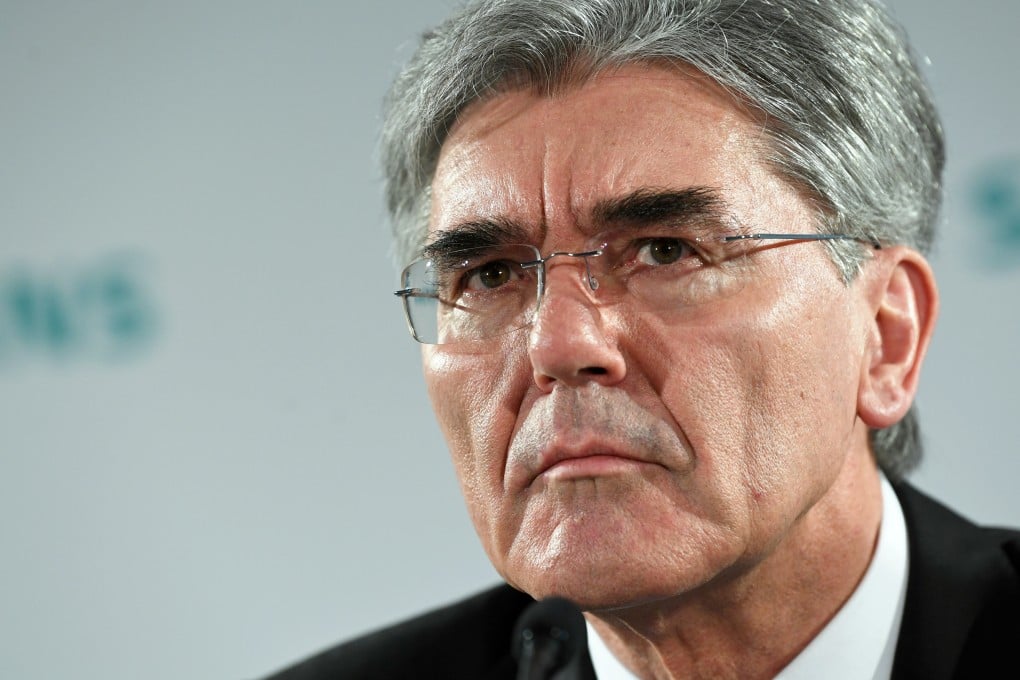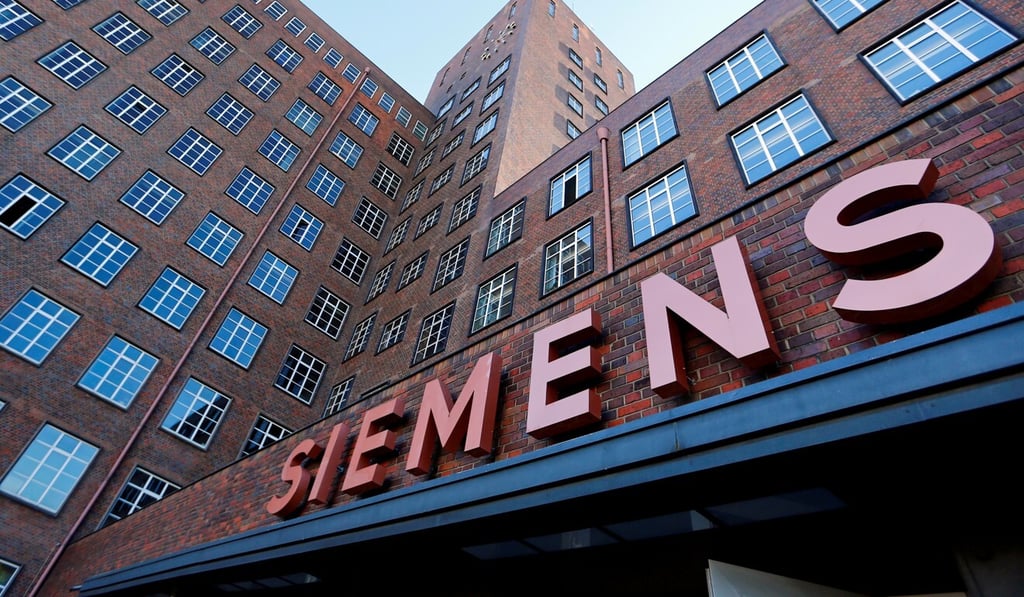Advertisement
Siemens’ CEO criticises Beijing’s Hong Kong, Xinjiang policies, but firm ‘still committed’ to China
- On allegations of human rights abuses in Xinjiang, CEO Joe Kaeser says ‘we should neither tolerate all of this in our companies nor accept it without consequences’
- Firm says Kaeser ‘voiced his concerns over complicated issues because the company cares for the development of China’
Reading Time:2 minutes
Why you can trust SCMP

German industrial giant Siemens’ commitment to China “remains unchanged”, the company said in a statement published by a Chinese state newspaper just days after its chief executive spoke out about Beijing’s hardline policies in Hong Kong and Xinjiang.
In an interview with German newspaper Die Zeit, Joe Kaeser, who took over as Siemens’ CEO in 2013, said the company was “watching the current developments in Hong Kong, but also in the province of Xinjiang carefully and with concern”.
His comments were unusual because foreign companies in China have tended to not speaking openly on matters deemed sensitive to Beijing out of fear of retaliation.
Advertisement

Beijing introduced a national security law for Hong Kong on July 1, sparking criticism from Western countries and business groups that it would erode the city’s autonomy under “one country, two systems”.
Advertisement
“We have always said: as long as Beijing adheres to the one country, two systems agreement, German business can handle it,” Kaeser said.
Advertisement
Select Voice
Choose your listening speed
Get through articles 2x faster
1.25x
250 WPM
Slow
Average
Fast
1.25x